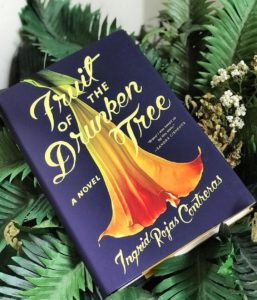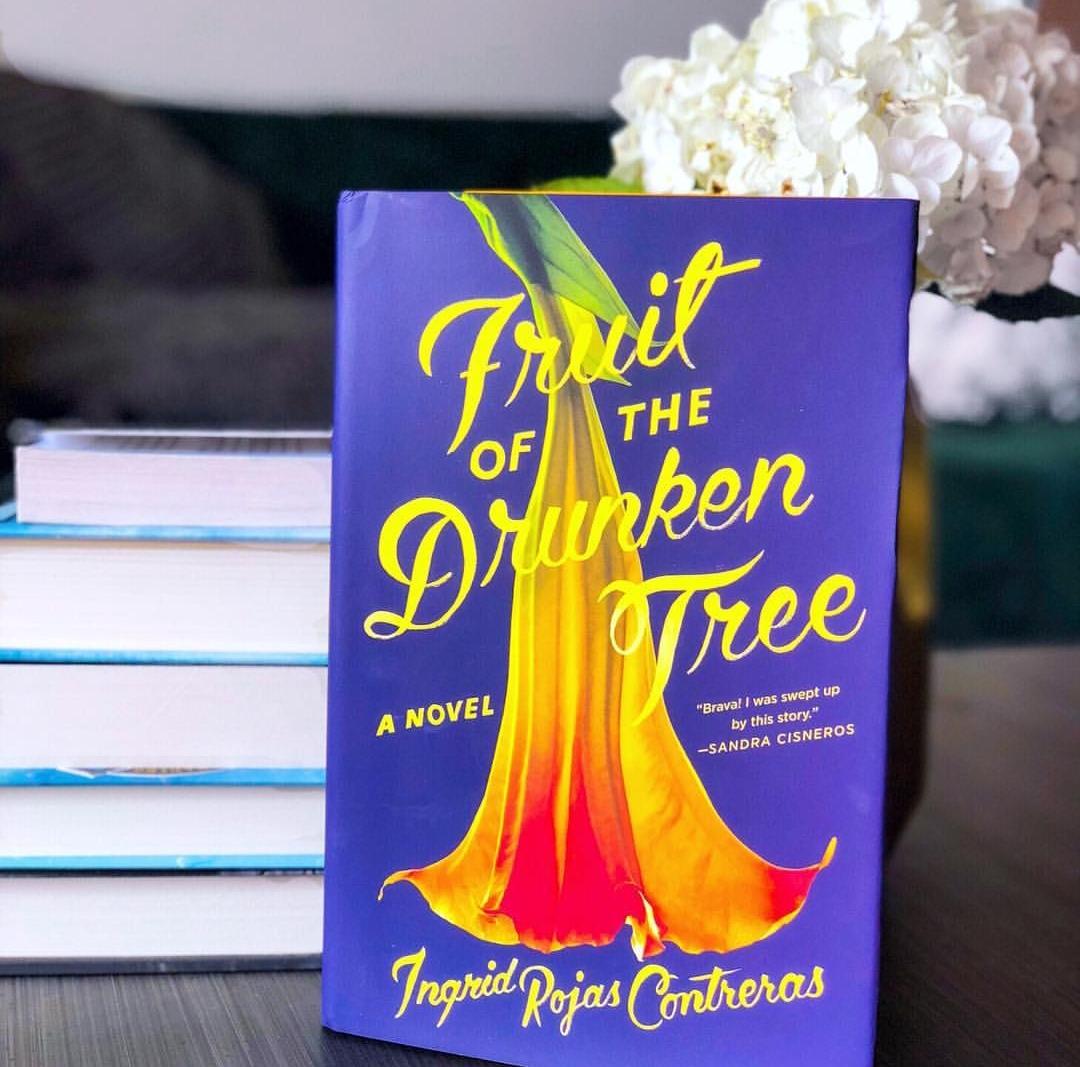
***If you are in my Teacher Book Club (Margarita Club) – DO NOT READ!***
You’ve Been Warned.
Suffice it to say, this was our club’s selection for the month of September (which I chose), thus I don’t want all of my big points to be shared before I have carne asada in my tummy and a skinny margarita in my hand.
But my self-control won’t allow me to hold off on blogging my take aways from Fruit of the Drunken Tree (and honestly, I’ll be ten books deep before I get to talk about it in October), so here I go:

Set in the late 1980s to the early 2000s and spanning between Columbia and Los Angeles, this story is told from the perspective of two girls as they endure the instability, terror, and seemingly random violence of the Columbian Cartel and their leader, Pablo Escobar.
The first and most dominant voice in the telling is Chula, an elementary aged child living with her sister Cassandra, her mother and her father in a fairly prestigious and gated community of Bogota, Columbia. Chula’s father is usually away on business, so the day-to-day parenting and caretaking is done by their mother and whatever girl she has hired at the time. Their mother is originally from a rough slum of Columbia, which ostracizes her from a lot of social circles, but also gives her some empathy for the girls she hires who are from similar backgrounds to her.
Her latest hire, and the second voice of the book is Petrona. Petrona is also from Bogota, but lives in a portion called The Hills. This area is a warn down ghetto, plagued by the constant threat of guerrilla kidnapping and unprovoked violence. With her mother homebound with asthma and her younger siblings in need of a bread winner, Petrona drops out of school to become a caretaker for Chula and Cassandra.
Upon first encountering the mother and her daughters, Petrona is unsettlingly quite and withdrawn, rarely speaking or sharing information about herself. Slowly, Chula and her mother convince Petrona to warm to them and take part in their Kingdom of Women, as they’ve dubbed it.
As this is happening on the inside of the household, the world is literally being blown apart on the outside by car bombs, assassinations, and the ever present threat of kidnapping. Pablo Escobar’s reign is an unshifting black cloud; a constant point of suffering for Columbians everywhere.
As Petrona happily goes about her life with her new employers, she falls in love with Gorrion, a seductive and shady character, who woes her into trusting him in all things. This proves to be the turning point and ultimate test for Petrona, as Gorrion and his gang ask her to do the most unthinkable and unforgiveable of acts.
What choices will Petrona have to make? How will this effect the family she has grown to love so dearly? What is the ultimate price of survival in Columbia? Is it worth betraying those you hold the closest?

When I initially picked up this book, I thought the main premise would be about friendship between two girls from very different back grounds, during a dark time in Columbia’s history. The actual story is way more complex and tragic than that. Being that Rojas Contreras wrote this as a parallel to her own life story, it’s also disturbingly comparable to people’s real-life experiences and leaves the reader feeling jaded afterwards.
If you’ve watched Narcos on Netflix (which you should, because it’s awesome), or you’ve seen any documentaries of Pablo Escobar and his sociopathic terrorism, you’ll have more background knowledge going into this book. It’s equal parts fascinating and panic-inducing, because literally no one was safe from harm during that time. There was never a neighborhood or class of people who could escape the day-to-day danger, and the paranoia of who could be trusted was an exhausting constant.
Though what Petrona is asked to do is despicable and her initial choice is abhorrent, I had to keep reminding myself this was literally life or death for her and her family. If I was asked to do the same thing with the same stakes involved, would I be noble or would I succumb to the fear of losing my loved ones? I suggest going into the book and looking at Petrona’s predicament with a touch of empathy; otherwise, you will despise her and be questioning the goodness of humanity from here on out.

Somethings I would have reallyyyyyy liked to see in this book:
1, More input from Petrona! I’m sorry but Petrona’s story was so much more interesting than Chula’s. Rojas Contreras probably wrote more from Chula’s perspective because Chula’s character is a reflection of the author herself. Though her experience is important, it doesn’t pull the reader in as much. I found myself getting so frustrated that Petrona’s chapters were excessively short. Maybe this was the point, but I didn’t like that.
2. I would have liked more information about their lives after they left Columbia to escape to the United States. I also would have liked to know more about Petrona’s life after her devastating experience. This is one of those books where you feel left with a lot of questions; there is no closure or feel-good feelings afterward. The reader’s just left…wondering.
Ultimately, I’m glad I read this book. It’s very different from what I would usually read in regards to historical fiction. It gives the reader an in-depth look into the experience of Columbians during the age of Escobar and is an eye-opening account of living in a constant state of fear.
If this sounds like a book you’d be interested in, you can find it here:
This is definitely one you’ll have thoughts on! Leave your comments below!
Happy & healthy reading!
Alexis

